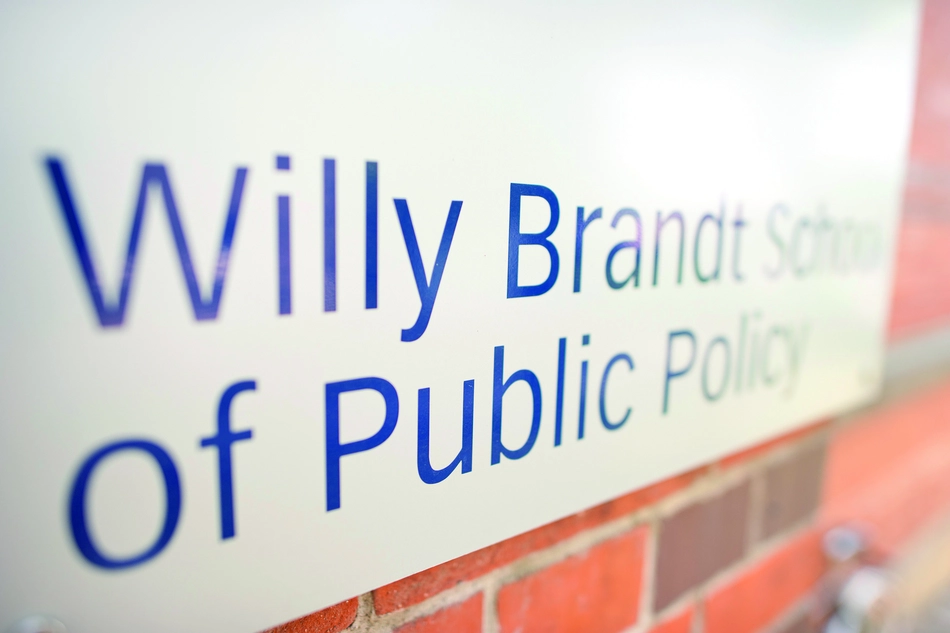"We at the Willy Brandt School of Public Policy are deeply shocked and concerned about the recent developments in Afghanistan. We have been training and educating Afghan students since 2006, most of them funded by the German Academic Exchange Service (DAAD). During the Master of Public Program, they acquired the tools and expertise to help build up their country. We have some 50 Afghan alumni, many of whom until now worked in Afghanistan’s public service, as politicians, scientists or in non-governmental organizations.
Now that the Taliban have brought the country under their control, those alumni and their families are facing severe danger to their lives. What had been built and accomplished has been destroyed. University education is unthinkable for the near future. In training Afghan professionals – especially in the political sphere – the Federal Republic of Germany has taken up an important task based on its democratic, humanistic and liberal values. The Federal Government needs to live up to these values now and act responsibly. To further follow this mission, the following long- and short-term actions need to be taken:
First of all, graduates from programs such as our Master of Public Policy, as well as their thus also threatened families, need to receive quick and unbureaucratic assistance to leave Afghanistan and to enter Germany. Thankfully, DAAD is already taking steps in that direction. However, the developments of the past days have demonstrated that immediate action is necessary and that, besides the graduates themselves and their core families, their extended families are also under imminent threat because of the link to our alumni. We call upon the German Federal Foreign Office to offer immediate and comprehensive assistance before the new regime in Kabul creates realities on the ground.
Second, Afghan citizens from particularly exposed professions need ad hoc support. Thus, we at the Brandt School will launch a 'Policy Experts at Risk' (PExaR) program that will give a temporary institutional affiliation to scientists, politicians, and employees of German organizations and non-governmental organizations. Their expertise, which is crucial for Afghanistan, will be preserved, they will have a platform for their work and a short term professional perspective in Germany. The PExaR program shall also be extended to policy experts from other countries affected by crisis in the medium-term. We ask the Federal Ministry for Education and Research and the Federal Ministry for Economic Cooperation and Development to support us structurally in this endeavor.
Unfortunately, the recent developments in Afghanistan are not a singular case. In February, a military coup pushed the people of Myanmar into a similar situation. Thus, we thirdly deem it necessary to develop sustainable tools that offer education – in the sense of the enlightenment and modern science – to people in countries hit by crises. In the case of Afghanistan, the country’s universities need a perspective for the future that lasts beyond the Taliban regime. We thus call upon German universities, to give them a platform to act as 'universities in exile'. This way they could develop and implement educational offers and continue their research out of exile. Germany’s education system, and higher education in particular, is inclusive and focused on participation. The boost in digitalization that the last year has brought offers a wide range of opportunities in that regard. This will require not only the support of the already mentioned ministries, but also of civil society organizations that aim at a free world. Such can platforms can help countries in crises to attain a critical mass in education and knowledge to safeguard their 'scientific memory' and may contribute to the countries’ stability in the long run.
We at the Brandt School will do our very best for our Afghan alumni, colleagues, and peers. We call on the Federal Government to go beyond the short-term evacuation of individuals at risk and to follow up on the outlined long-term actions: To develop long-term educational tools for crisis prevention and management. This is not just a humanitarian task. It is in the enlightened self-interest of Europe’s economically and politically leading nation."

